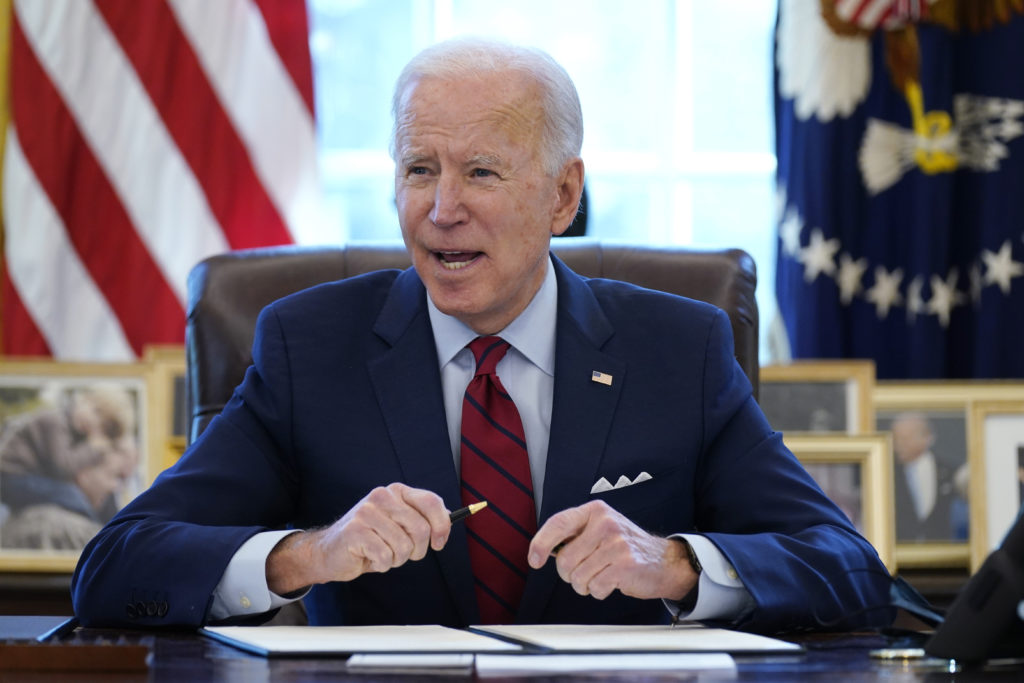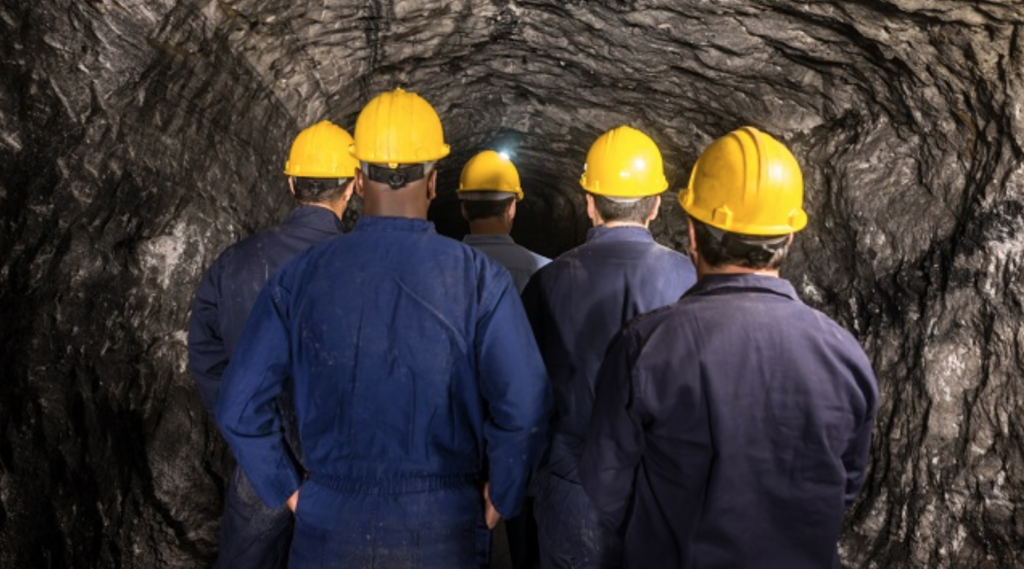Lanett Mayor arrested for state ethics charges

Alabama Attorney General Steve Marshall announced the arrest of Lanett Mayor Jonathon Kyle McCoy. McCoy, who has been mayor since 2015, has been indicted on state ethics violation charges. The three felony charges are for using his official position as mayor for personal gain. McCoy, 56, surrendered on Tuesday. His bond is set at $30,000. The charges were brought after a grand jury returned an indictment on February 12. McCoy, 56, surrendered at the Chambers County Jail this morning, with a bond set at $30,000. McCoy was indicted under the following three counts: • using his official position or office to allow a dependent and/or family member to access and use a 2015 Chevrolet Tahoe owned by the City of Lanett without a lawful purpose, • using his official position or office to obtain extensions and/or waivers of City ofLanett utility charges involving an amount equal to or a portion of $43,302.32 in U.S. currency, • using his official position or office to obtain personal purchases made on a City of Lanett account valued at an amount equal to or a portion of $643.84 in U.S. currency and/or labor of a personal nature by City of Lanett employees, which was paid for with overtime wages. According to Al.com, McCoy stated, “I have proudly served as the Mayor of the City of Lanett since October 2015. As Mayor I have always held myself to the highest standard to serve the citizens of Lanett. Today the Attorney General’s Office and others, have made an attempt to destroy my character, embarrass the City, my family, and the Citizens of Lanett, by bringing criminal charges against me. I emphatically deny any wrongdoing, and I will vigorously defend these charges.” McCoy continued, “I will not be deterred by this, and I will continue to serve the citizens of this great city with integrity and let justice prevail.” If convicted, McCoy faces a maximum penalty of two to 20 years in prison and a $30,000 fine for each of the three counts. He would also have to leave office.
Joe Biden faces questions about commitment to minimum wage hike

Union activist Terrence Wise recalls being laughed at when he began pushing for a national $15 per hour minimum wage almost a decade ago. Nearly a year into the pandemic, the idea isn’t so funny. The coronavirus has renewed focus on challenges facing hourly employees who have continued working in grocery stores, gas stations, and other in-person locations even as much of the workforce has shifted to virtual environments. President Joe Biden has responded by including a provision in the massive pandemic relief bill that would more than double the minimum wage from the current $7.25 to $15 per hour. But the effort is facing an unexpected roadblock: Biden himself. The president has seemingly undermined the push to raise the minimum wage by acknowledging its dim prospects in Congress, where it faces political opposition and procedural hurdles. That’s frustrating to activists like Wise, who worry their victory is being snatched away at the last minute despite an administration that’s otherwise an outspoken ally. “To have it this close on the doorstep, they need to get it done,” said Wise, a 41-year-old department manager at a McDonald’s in Kansas City and a national leader of Fight for 15, an organized labor movement. “They need to feel the pressure.” The minimum wage debate highlights one of the central tensions emerging in the early days of Biden’s presidency. He won the White House with pledges to respond to the pandemic with a barrage of liberal policy proposals. But as a 36-year veteran of the Senate, Biden is particularly attuned to the political dynamics on Capitol Hill and can be blunt in his assessments. “I don’t think it’s going to survive,” Biden recently told CBS News, referring to the minimum wage hike. There’s a certain political realism in Biden’s remark. With the Senate evenly divided, the proposal doesn’t have the 60 votes needed to make it to the floor on its own. Democrats could use an arcane budgetary procedure that would attach the minimum wage to the pandemic response bill and allow it to pass with a simple majority vote. But even that’s not easy. Some moderate Democratic senators, including Joe Manchin of West Virginia and Krysten Sinema of Arizona, have expressed either outright opposition to the hike or said it shouldn’t be included in the pandemic legislation. The Senate’s parliamentarian may further complicate things with a ruling that the minimum wage measure can’t be included in the pandemic bill. For now, the measure’s most progressive Senate backers aren’t openly pressuring Biden to step up his campaign for a higher minimum wage. Bernie Sanders, the chair of the Senate Budget Committee, has said he’s largely focused on winning approval from the parliamentarian to tack the provision onto the pandemic bill. Sen. Elizabeth Warren, who like Sanders challenged Biden from the left for the Democratic nomination, has only tweeted that Democrats should “right this wrong.” Some activists, however, are encouraging Biden to be more aggressive. The Rev. Dr. William J. Barber II, the co-chair of the Poor People’s Campaign, said Biden has a “mandate” to ensure the minimum wage increases, noting that minority Americans were “the first to go back to jobs, first to get infected, first to get sick, first to die” during the pandemic. “We cannot be the last to get relief and the last to get treated and paid properly,” Barber said. The federal minimum wage hasn’t been raised since 2009, the longest stretch without an increase since its creation in 1938. When adjusted for inflation, the purchasing power of the current $7.25 wage has declined more than a dollar in the last 11-plus years. Democrats have long promised an increase — support for a $15 minimum wage was including in the party’s 2016 political platform — but haven’t delivered. Supporters say the coronavirus has made a higher minimum wage all the more urgent since workers earning it are disproportionately people of color. The liberal Economic Policy Institute found that more than 19% of Hispanic workers and more than 14% of Black workers earned hourly wages that kept them below federal poverty guidelines in 2017. Blacks, Hispanics, and Native Americans in the U.S. also have rates of hospitalization and death from COVID-19 that are two to four times higher than for whites, according to the Centers for Disease Control and Prevention. People of color are a vital part Biden’s constituency, constituting 38% of his support in November’s election, according to AP VoteCast, a nationwide survey of the electorate. Adrianne Shropshire, executive director of BlackPAC, noted that Biden has promised to address racial inequalities and create a more fair economy. That means he now has a chance to ensure that hourly wage earners “come out of this pandemic in better shape than they went into it.” “The recovery around COVID shouldn’t just be about how to stabilize and get people back to zero,” Shropshire said. “It should be about how do we create opportunities to move people beyond where they were.” The White House says Biden isn’t giving up on the issue. His comments to CBS, according to an aide, reflected his own evaluation of where the parliamentarian would rule based on his decades of experience in the Senate dealing with similar negotiations. Biden suggested in the same interview that he’s prepared to engage in a “separate negotiation” on raising the minimum wage, but White House press secretary Jen Psaki offered no further details on the future of the proposal if it is in fact cut from the final coronavirus aid bill. One option could be forcing passage by having Vice President Kamala Harris, as the Senate’s presiding officer, overrule the parliamentarian. But Psaki was clear in opposing that: “Our view is that the parliamentarian is who is chosen, typically, to make a decision in a nonpartisan manner.” Navin Nayak, executive director of the Center for American Progress Action Fund, the political arm of the progressive think tank, said he wasn’t surprised at Biden’s assessment, but still feels the White House is
Joe Biden faces pressure as U.S. sets new course on immigration

After a weeklong bus ride from Honduras, Isabel Osorio Medina arrived in northern Mexico with the hope President Joe Biden would make it easier for people like him to get into the United States. “It seems the new president wants to help migrants,” Osorio said as he got ready to check in to a cheap hotel in downtown Tijuana before heading to the U.S. “They’re saying he is going to help, but I don’t know for sure how much is true or not.” The 63-year-old is among thousands of people who have come to the U.S.-Mexico border with the hope they will be able to ask for asylum and make their way into the U.S. now that former President Donald Trump is no longer in office. While Biden has taken some major steps in his first weeks in office to reverse Trump’s hardline immigration policies, his administration hasn’t lifted some of the most significant barriers to asylum-seekers. In fact, it’s discouraging people from coming to the country, hoping to avoid what happened under both Trump and former President Barack Obama — border agents getting overwhelmed by migrants, including many Central Americans with children. “Now is not the time to come,” White House press secretary Jen Psaki said at a recent briefing, “and the vast majority of people will be turned away.” Secretary of State Antony Blinken struck a similar tone on Feb. 6 as he announced official steps to end Trump-era agreements with Honduras, El Salvador, and Guatemala that required many asylum-seekers to seek refuge in one of those countries instead of the U.S. “To be clear, these actions do not mean that the U.S. border is open,” Blinken said. “While we are committed to expanding legal pathways for protection and opportunity here and in the region, the United States is a country with borders and laws that must be enforced.” That message hasn’t reached everyone. More people have been arriving at an encampment in Matamoros, Mexico, a dangerous city just south of the Texas border where hundreds of asylum-seekers have been waiting under Trump’s “Remain in Mexico” program. It’s possible even more may come after the Biden administration announced Friday that it would slowly allow an estimated 25,000 people to enter the U.S. as their cases are reviewed. The first wave is expected Feb. 19. Walter Valenzuela, a 37-year-old Honduran, said he had been waiting in Tijuana, across the border from San Diego, for months for a chance to either seek asylum or risk an illegal crossing. For years, asylum-seekers who met the initial threshold of demonstrating a “credible fear” of persecution in their homeland could generally stay in the U.S. until an immigration judge decided whether they qualified for permanent residency, which can take years. Trump administration officials believed many asylum claims were fraudulent or lacked merit, submitted by people simply looking to remain in the U.S. But the issue is murky as tens of thousands flee violent gangs, natural disasters, and political upheaval. The Biden administration has signed several executive orders on immigration, including allowing in more refugees and establishing a task force to find the parents of about 600 children who were separated under Trump and still haven’t been reunited. But it hasn’t ended a public health order Trump issued at the start of the coronavirus pandemic that allows U.S. Customs and Border Protection to immediately expel nearly everyone, including asylum-seekers. Psaki said the government is still working to develop a “humane, comprehensive process” to evaluate people coming to the U.S. “Asylum processes at the border will not occur immediately,” she said. “It will take time to implement.” Alan Bersin, who held top positions dealing with border security during the Clinton and Obama administrations, warned that Biden is headed for a crisis if he releases all asylum-seekers into the United States. That would invite fraud and abuse, he said. “There’s such a pressing sense in the advocate community that is controlling the Biden immigration agenda — they want to reverse all Trump actions,” he said. Meanwhile, pressure is mounting. The number of people apprehended at the border has increased since January, though it’s below some previous periods. Authorities say many are getting caught and returned multiple times. Complicating matters, a law has taken effect in Mexico that prohibits holding children in migrant detention centers, and the U.S. has stopped sending back some families along parts of the border. CBP, which doesn’t have capacity to hold families because of COVID-19, in recent weeks has released dozens of people into the U.S. with instructions to appear in court later. Authorities fear that as word spreads of those releases, more people will come. And asylum is not the only immigration issue creating headwinds for Biden’s administration. Texas and Arizona have both sued to stop Biden’s 100-day deportation moratorium, which a judge temporarily put on hold. Immigration and Customs and Enforcement officers are complaining about proposed rules to focus on detaining and removing people in the country illegally who pose national security threats or have been convicted of more serious crimes. Jon Feere, a senior adviser to ICE under Trump, said such moves are part of a larger pattern that the Biden administration will come to regret. “When you send the message that you are not serious about immigration enforcement, you can’t act surprised when you see a massive influx of people that you have to manage,” he said. Raul Ortiz, deputy chief of the Border Patrol, said last week that as a liaison to the Biden transition team, he found the staff to be “very attentive” to the issues. Some had experience with surges of asylum-seekers under Obama. “This wasn’t uncharted waters,” Ortiz said in an interview produced by the Border Patrol. “It wasn’t like we were starting from scratch.” The larger debate is lost on Osorio, who came to Tijuana because he heard Biden wants to help people like him. He says he intended to seek asylum based on the dangers he faced as an environmental activist protesting illegal logging in Honduras. But because he
Alabama researchers working on robots to be used by police

Alabama Coal Association transitions Alabama Mining Association, focuses on sustainable use of natural resources

The Alabama Coal Association is moving to the future and has renamed itself. The new name, Alabama Mining Association, comes with a new digital identity and website. The mission of AMA is to “promote the safe and sustainable mining of the natural resources that strengthen our infrastructure and grow our economy for all Alabamians.” Patrick Cagle, president of the Alabama Mining Association, stated, “I am honored to serve as the President of the Alabama Mining Association (AMA), and I welcome this opportunity to tell you more about who we are and our vision for the future. As a nonprofit trade association, AMA serves as the unified voice of Alabama’s mining industry. Our mission is to promote the safe and sustainable mining of the natural resources that strengthen our infrastructure and grow our great state’s economy.” Cagle added, “Membership in AMA is open to all sectors of our state’s mining industry as well as the vendors and service providers that support the mining industry. My goal is to equip our members with the best resources available to thrive in an ever-changing legislative, regulatory, and social environment.” Cagle became the Alabama Coal Association president in 2018, replacing George Barber. In 2018, the ACA website stated that the group was formed in 1972 by a small number of surface mining companies who “recognized the need for a unified voice to cope with the modern-day issues that impact so dramatically on the mining industry, the ACA now represents firms that produce 92% of all coal produced in the State of Alabama.” Barber took over the role of president in 2011 on an interim basis and continued to serve in that role until his decision to retire. He was also been a member of the board of directors and was a past chairman of the board. AMA has adopted a free-market approach to recognizing sustainability achievements and wants to incentivize innovation projects. It is leading the effort of sustainable mining in the United States and is the first state association to establish a sustainable mining program. In the fall of this year, AMA will hold its first Annual Safety and Sustainability Awards Dinner. Sustainability projects submitted by AMA members will be evaluated by a panel of judges comprised of regulatory agency leaders, wildlife officials, and conservation organization leaders. “Whether you mine the stone, sand, and gravel that strengthens our infrastructure, met coal exported to steelmakers around the world, or the thermal coal that powers local industry, AMA is the partner that keeps you producing,” stated Cagle. Alabama Senate President Pro Tem Greg Reed stated, “Mining is a very important part of our state’s economy, and I value the work that the Alabama Mining Association does to support this critical industry. Their expansion to represent all mining operations will benefit the many companies who produce the construction aggregates used to build and improve our state’s important infrastructure and drive economic growth.” “As the collective voice of Alabama’s mining industry, AMA is the advocate dedicated to ensuring that decision-makers at the local, state and federal level understand how our industry supports the economy in their communities and improves the quality of life of their constituents,” Cagle added. “We are fully committed to strengthening relationships with our regulators to help us accomplish our shared goals.”


